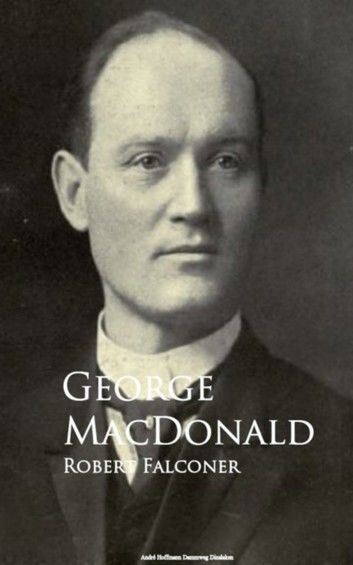Robert Falconer, school-boy, aged fourteen, thought he had never seen his father; that is, thought he had no recollection of having ever seen him. But the moment when my story begins, he had begun to doubt whether his belief in the matter was correct. And, as he went on thinking, he became more and more assured that he had seen his father somewhere about six years before, as near as a thoughtful boy of his age could judge of the lapse of a period that would form half of that portion of his existence which was bound into one by the reticulations of memory. For there dawned upon his mind the vision of one Sunday afternoon. Betty had gone to church, and he was alone with his grandmother, reading The Pilgrim's Progress to her, when, just as Christian knocked at the wicket-gate, a tap came to the street door, and he went to open it. There he saw a tall, somewhat haggard-looking man, in a shabby black coat (the vision gradually dawned upon him till it reached the minuteness of all these particulars), his hat pulled down on to his projecting eyebrows, and his shoes very dusty, as with a long journey on foot—it was a hot Sunday, he remembered that—who looked at him very strangely, and without a word pushed him aside, and went straight into his grandmother's parlour, shutting the door behind him. He followed, not doubting that the man must have a right to go there, but questioning very much his right to shut him out. When he reached the door, however, he found it bolted; and outside he had to stay all alone, in the desolate remainder of the house, till Betty came home from church...










